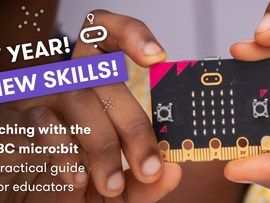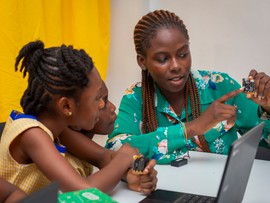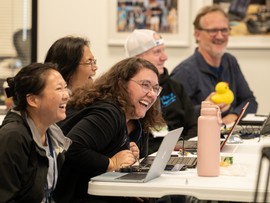New MakeCode sound feature for creativity and learning
The Microsoft MakeCode block editor for the BBC micro:bit has been updated with a new feature to help your students get creative and explore the science of sound and music
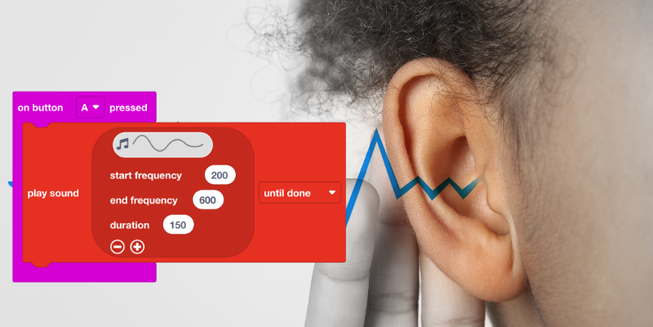
The new 'play sound' block lets your students get more creative and expressive with sound when using the micro:bit V2 with built-in speaker. Now you can visualise and manipulate more complex sounds, learning about key science and music concepts of pitch and volume.
The science of music and sound
The new sound editor helps you understand key musical and scientific concepts of frequency (pitch) and volume. This visual editor makes the connection between what you see and what you hear as pitch and volume change over time.
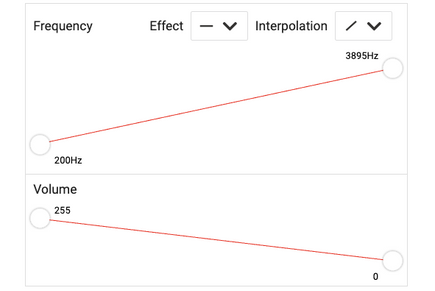
You can also discover how changing the shape of the waveform alters the timbre, or quality, of the sound - a jagged waveform sounds ‘spikier’ than a smooth one, for example.
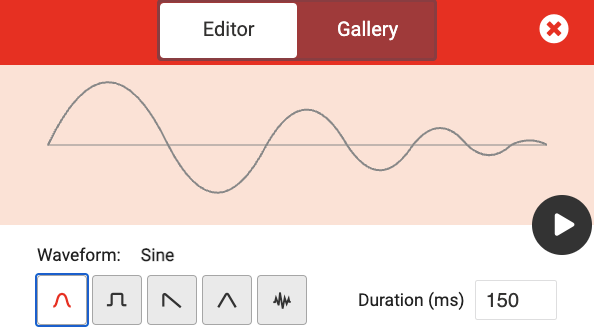
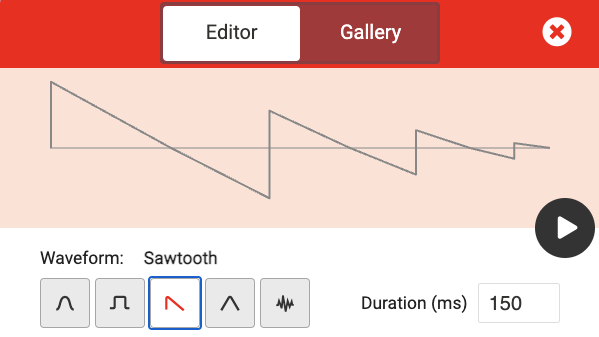
Unleash your sonic creativity
The new ‘play sound’ code block also fosters creativity and learning about sound through playful experimentation
Test it out in the MakeCode editor simulator and then transfer your creations to V2 micro:bits with built-in speakers.
The gallery allows you to load new sounds and modify them to make your own sonic creations to augment your projects.
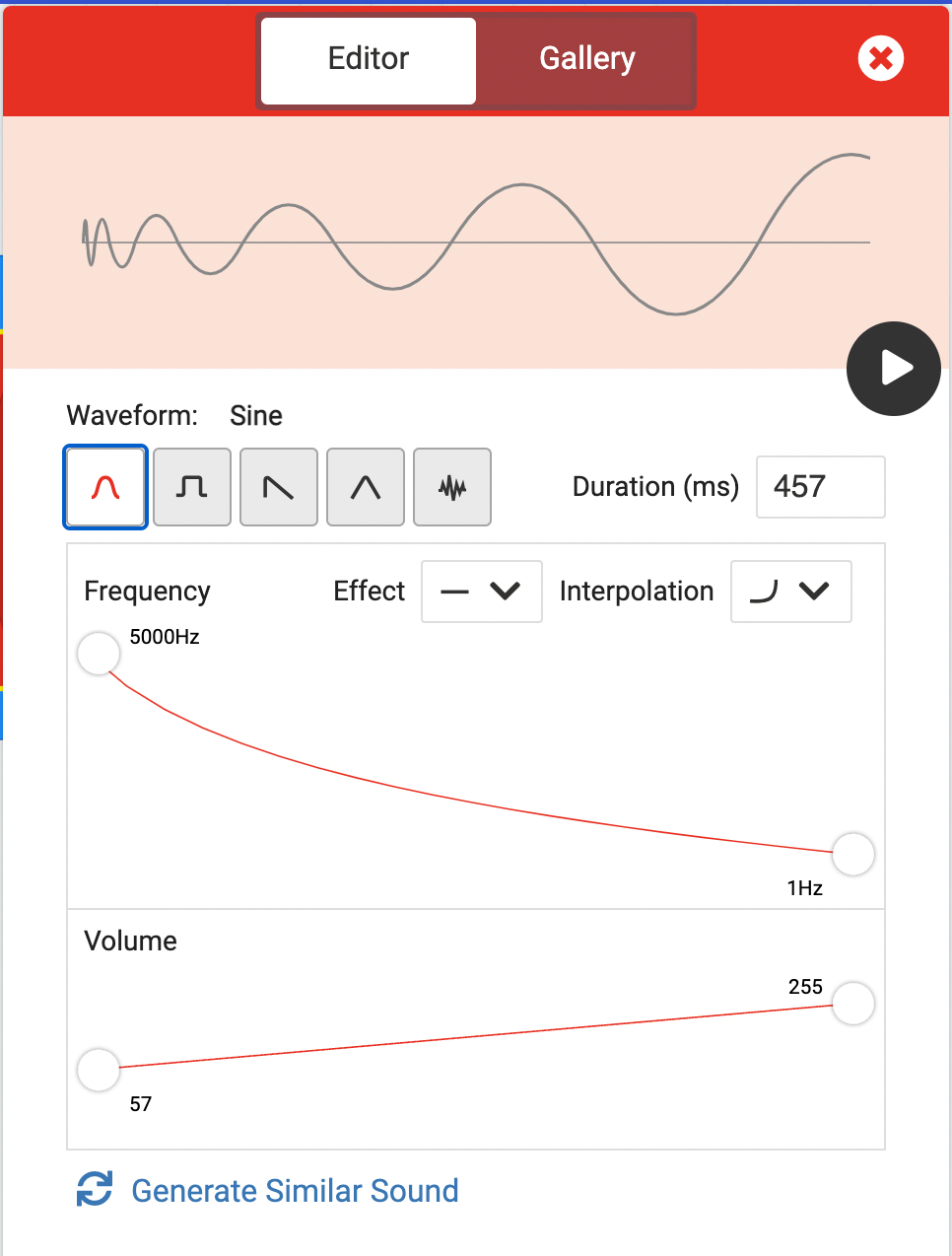
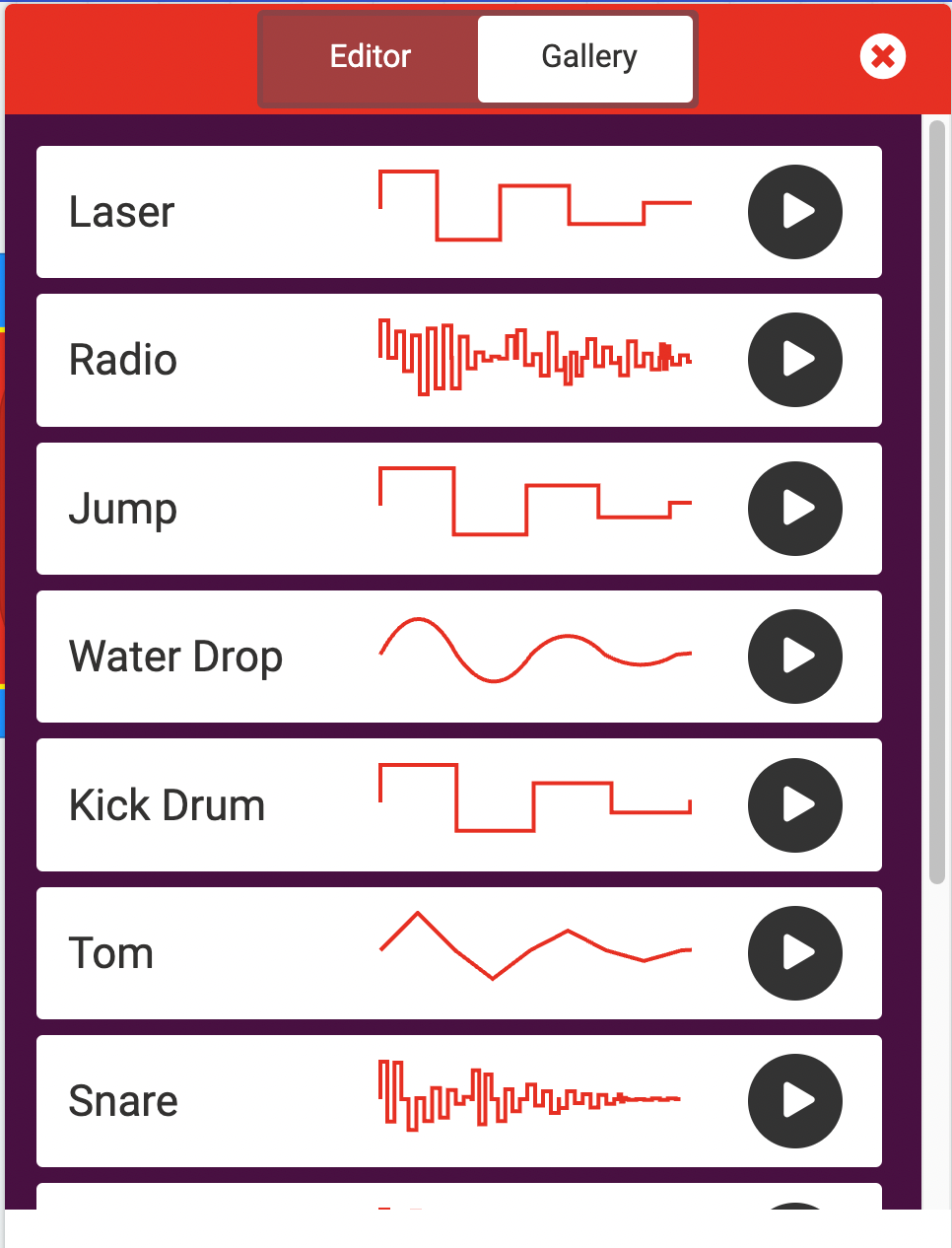
You can even create new, similar sounds at random. Happy accidents can trigger ideas without needing to understand all the controls
Improved discoverability
In this update to MakeCode, you’ll also find:
- you can right-click in the workspace to find blocks, useful if your project is very large
- extensions are now easier to find
- a new data logging extension that works with any V2 micro:bit
Collaboration with educators
Finland is pioneering cross-disciplinary teaching of computer programming in the physics curriculum, so the Micro:bit Educational Foundation is working with educational experts at the University of Eastern Finland to ensure this new sound feature works well for science teaching. The Foundation would like to offer their thanks to the following colleagues in Finland:
- Sampo Forsström, the Finnish EU Schoolnet country lead and member of the teacher trainer team in the university's department for education
- Risto Leinonen, lecturer at the Faculty of Science and Forestry in the Department of Physics and Mathematics
- Ville Eronen, lecturer at the University of Eastern Finland
About Microsoft MakeCode
Microsoft is a Founding Partner of the Micro:bit Educational Foundation. The Foundation works collaboratively with Microsoft on the development of the MakeCode software editor. Each year the two organisations collaborate on features to support new ways to work in code and physical computing with the micro:bit.
